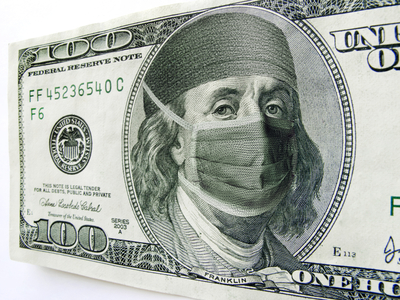You’ve got to hand it to President Obama’s partisans among the pundits: They won’t be deterred, no matter how bad the president’s policies prove to be.
Videos By Rare
Even as Mr. Obama himself continuously alters and delays implementation of his own healthcare agenda (all without congressional participation), his faithful followers in the media insist that “the law is more resilient than you think” and “Obamacare death-spiral worries are overblown.”
Meanwhile, the rest of us across the country find ourselves on the run from our government, hoping and praying that we don’t need serious medical care anytime soon or that our insurance plans and jobs don’t both get “cancelled.” Even the New York Times had to admit in a news story this weekend that, because it raises taxes and drives up the cost of every facet of healthcare, the Obamacare agenda is hammering middle class Americans who “aren’t poor enough” to qualify for the president’s healthcare subsidies.
What can we learn from this debacle? In the interest of not repeating the same mistakes, consider this:
We should all stop believing in the magical promises of politicians: President Obama promised that his legislation would produce better quality health care for more people, and that it would cost less money. But how could that have ever been a realistic promise? Goods and services have to be paid for somehow. The president’s rhetoric was the economic equivalent of alchemy — the mythical chemical process of turning fecal matter in to gold.
Arguably, the American people were duped by this. Not once, but twice did we vote to make the man with specious claims our President. And along with Barack Obama’s magical promises about healthcare are his and congressional members’ agendas for reducing the cost of higher education, even as student-loan debt among college graduates is at an all-time high.
The modern-day liberal political agenda promises a government program to meet every human being’s needs at every stage of life. Americans need to sober-up and realize that there is no government program that can substitute for hard work, frugality, stewardship and productivity. And the more we vote for our government to meet our needs, the more we are subject to the whims of politicians and bureaucrats.
We should all begin to understand the basic economic dynamics of our professions and industries: It is sad to realize how many highly-trained and well-educated professionals don’t understand basic cash-flow issues at their place of employment. Ask them “How do you get paid?” and you’re likely to hear “Through automatic deposit” or “I get a check every two weeks.”
The insurance industry thought the Obamacare agenda was great at first — if the federal government uses its power to mandate that people buy your product (insurance) what could possibly go wrong? But now finds itself a servant to the federal government, and reliant on the government’s ability to operate websites and process subsidy applications properly. In short, the insurance industry is now, by law, an extension of the U.S. Department of Health and Human Services and the presidential administration.
And then there are the medical doctors among us. There was a day when the American Medical Association officially opposed Medicare, the federal healthcare program for retirees and the disabled, because physicians feared “too much government meddling” in their practices. But soon after the program launched, the AMA fell in love with Medicare because it created continuous revenue streams in to doctor’s offices.
But after two and a half decades or so of financial bliss, things began to change. Back in the 90s the federal government began telling physicians, in essence, “We don’t care what your ‘billing rate’ is for any particular service — we’ll pay you what we think your service is worth.” As a result, many physicians try to limit the number of Medicare patients they see today because dealing with Medicare is financially a “loser.”
Having still not learned their lesson, the AMA then began an “on again, off again” flirtation with President Barack Obama. In 2009 the group tacitly opposed Obamacare; then in 2010 they said they were “open to it;” and in 2012 — in the final few weeks of the presidential re-election cycle — they officially opposed it again. Without any clear understanding of the economic dynamics of their profession, today physicians are losing their jobs in some regions of the country and having their wages cut in others, because the Obamacare law drives up the operational costs of hospitals and clinics, making physicians’ salaries unmanageable.
Have Americans sobered-up and are we willing to assume responsibility for our own needs? Or are we still looking for a savior in the White House and in Congress, and willing to believe more empty promises? The 2014 elections should help answer these questions.

